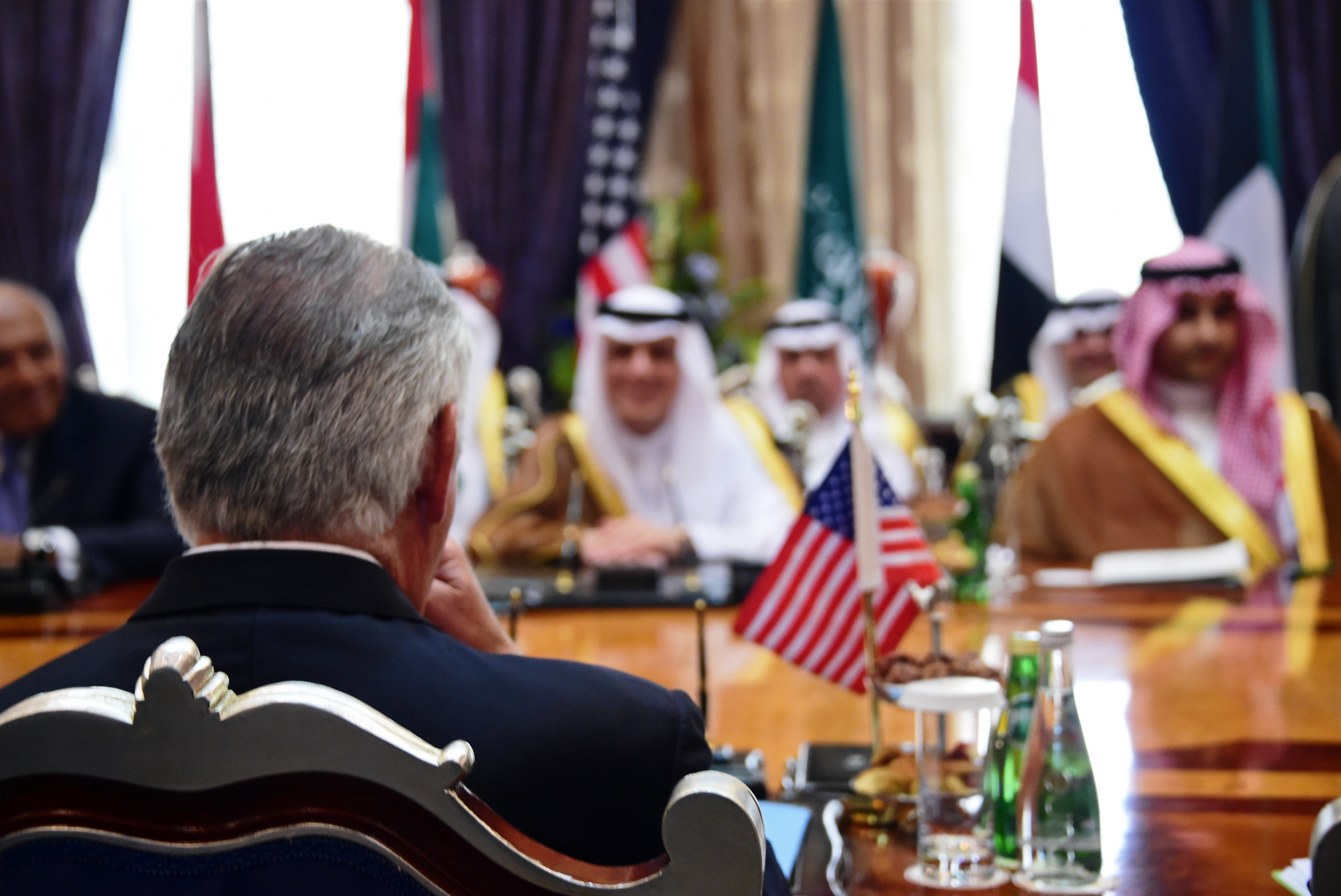The Qatar crisis, the deep state, and a mysterious leak
Why did intelligence officials leak the truth about the embargo in Qatar?


A free daily email with the biggest news stories of the day – and the best features from TheWeek.com
You are now subscribed
Your newsletter sign-up was successful
The latest in the seemingly endless series of Middle Eastern conflicts has just taken another turn. But for Americans, what's happening overseas may be less important than the way the ongoing conflict is playing out in the American press.
Back on May 24, the Qatar News Agency broadcast a news story in which the Qatari emir touted his country's good relations with both Israel and Hamas and criticized other Gulf states for their hostility to Iran. The Qatari government immediately claimed the news story was fake, and had been inserted by hackers, but both its Gulf neighbors and other Arab states like Egypt scoffed at those claims. They blocked Qatari media and imposed an embargo on the tiny country that, though immensely wealthy, is almost entirely dependent on imports for food and other vital goods.
Qatar, predictably, turned to Iran for assistance in weathering the embargo. And America's diplomatic and military leadership, cognizant of the importance of Qatar's Al Udeid Air Base, moved to defuse the conflict — until President Trump stepped in to tweet his support for the Saudis and their allies and accuse Qatar of providing support for ISIS and other terrorist groups.
The Week
Escape your echo chamber. Get the facts behind the news, plus analysis from multiple perspectives.

Sign up for The Week's Free Newsletters
From our morning news briefing to a weekly Good News Newsletter, get the best of The Week delivered directly to your inbox.
From our morning news briefing to a weekly Good News Newsletter, get the best of The Week delivered directly to your inbox.
The charge of being soft on support for Sunni terrorist groups is legitimate — but could be applied equally well, if not more so, against Saudi Arabia and the United Arab Emirates. The real beef against Qatar is precisely that it has pursued a less-confrontational policy toward Iran than the Saudis want. In that sense, whether the news story was real or fake is of limited consequence; whether the emir said the things the story attributed to him, those statements are a reasonable description of Qatari policy.
Which is what makes the latest turn in the story as it has played out in the American press so noteworthy. Over the weekend, The Washington Post published a story citing American intelligence officials confidently fingering the UAE as the party responsible for hacking the Qatar News Agency, and accusing them of having done so precisely to give them the pretext for imposing an embargo to bring Qatar to heel.
If the United States were clearly trying to broker peace between the parties — as Secretary of State Rex Tillerson was last week — leaking that intelligence assessment might have been a way to put pressure on the Saudis and Emiratis to back down. If there were anxious public debate about American support for Saudi Arabia and the UAE, then a rogue intelligence official might have leaked that assessment to the press in order to influence that debate and thereby shape the course of policy. Both dynamics, "official" leaks and unauthorized leaks, have played out repeatedly in the course of America's wars in the Middle East.
But the United States does not have a clear policy on the conflict. The president remains supportive of the Saudis and the Emiratis, while much of the diplomatic and military leadership wants to resolve the crisis. And the American public is likely largely unaware that the conflict is even happening, or what America's role might be.
A free daily email with the biggest news stories of the day – and the best features from TheWeek.com
So who is responsible for a leak like this? And what is their agenda? It is difficult to say because the government itself is divided. It may be that the leaker's real goal is simply to get the president's attention. But without knowing the president's own motivations for siding so strongly with one set of our allies against another, it's difficult to know how he will be influenced by a news story like this. Will he come to question the trust he has placed in the Saudi allies? Or will he just further discount the Post's reporting as motivated by his own "deep state" enemies?
Precisely because it seems unlikely that it will do much to affect the course of the conflict or of American policy, the leak smacks of desperation more than anything. Far from executing an orchestrated plan to frustrate and ultimately bring down the Trump administration, the "deep state" of foreign policy professionals simply doesn't know any longer what their jobs are, and their cries for help pour out weekly on the pages of The Washington Post.
Noah Millman is a screenwriter and filmmaker, a political columnist and a critic. From 2012 through 2017 he was a senior editor and featured blogger at The American Conservative. His work has also appeared in The New York Times Book Review, Politico, USA Today, The New Republic, The Weekly Standard, Foreign Policy, Modern Age, First Things, and the Jewish Review of Books, among other publications. Noah lives in Brooklyn with his wife and son.
